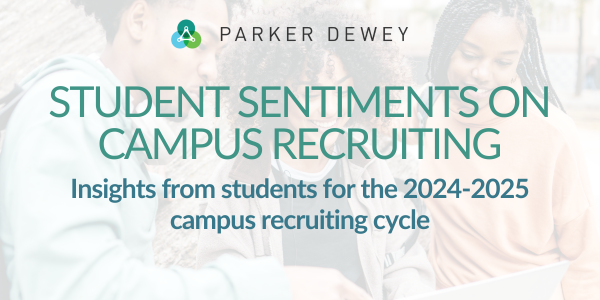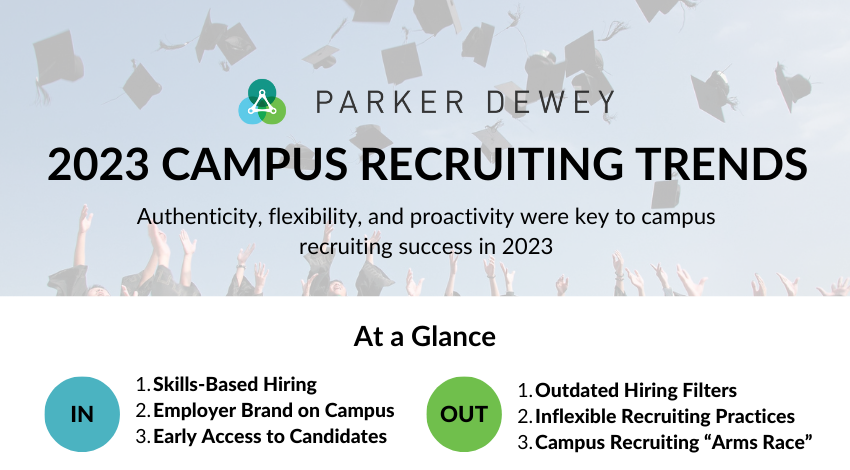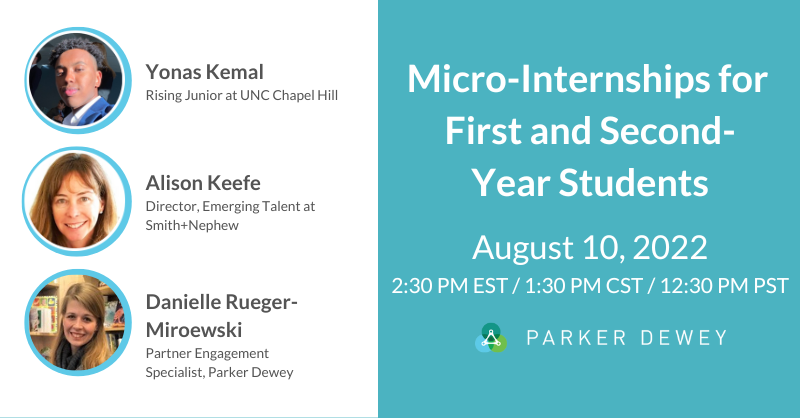
2024 Student Sentiments on Campus Recruiting
This spring, Parker Dewey reached out to more than 100,000 students across our nationwide talent network to understand how early-career talent prefers to engage with potential employers and what they look for in their career exploration.
Key insights reveal that early engagement remains vital. While college students begin thinking about potential career paths as early as freshman or sophomore year, many report a lack of opportunities for early career exploration. Moreover, many students want to investigate unfamiliar career paths, with 75% expressing a desire to explore careers unrelated to their degrees—but lack adequate resources, hold preconceived notions about particular industries or companies, or simply don’t know where to start.
This year's report also introduced specific industry data, revealing that students are most likely to apply to roles in technology, education, and healthcare. Students also shared that they’re least likely to apply to roles in agriculture, hospitality, and manufacturing, highlighting an opportunity for companies in lesser-known industries to boost brand awareness and help students learn about the breadth of roles available.
Students are increasingly expressing the need for recruitment processes that allow them to effectively showcase their broad skill set. The report highlights that only 29% of students believe traditional recruiting processes adequately reflect their full capabilities. This indicates a significant disconnect between current recruitment practices and the expectations of students who are eager to demonstrate a wider array of skills.
On the note of showcasing skills, 95% of respondents rated “real, paid work experience with an organization” as their preferred method of engaging with employers, allowing them to build, develop, and demonstrate their skills. In addition, real work experiences positively influenced their decision to apply and helped them build professional connections.
The continuous emphasis on real work experiences, flexible engagement, and fair compensation strategies is more crucial than ever. With the new industry data, recruiters can better tailor their approaches to meet the varied interests of students across different sectors.
As you begin to plan for the next academic year, this report will help your organization better understand how the early-career, high-potential talent you’re seeking views your efforts—and how you can best support students in launching their careers.






